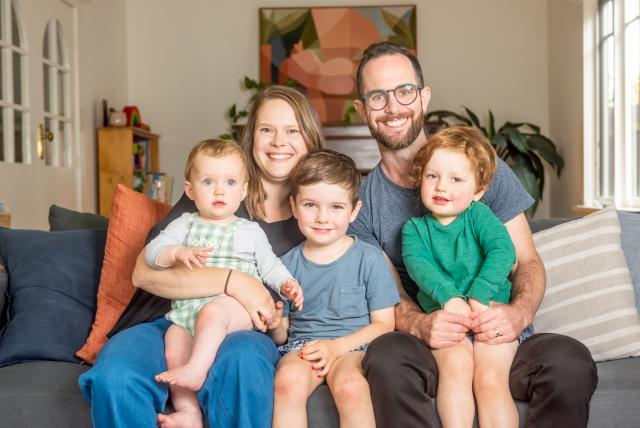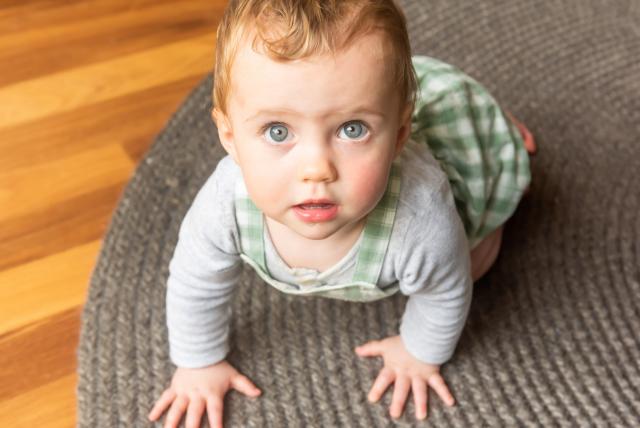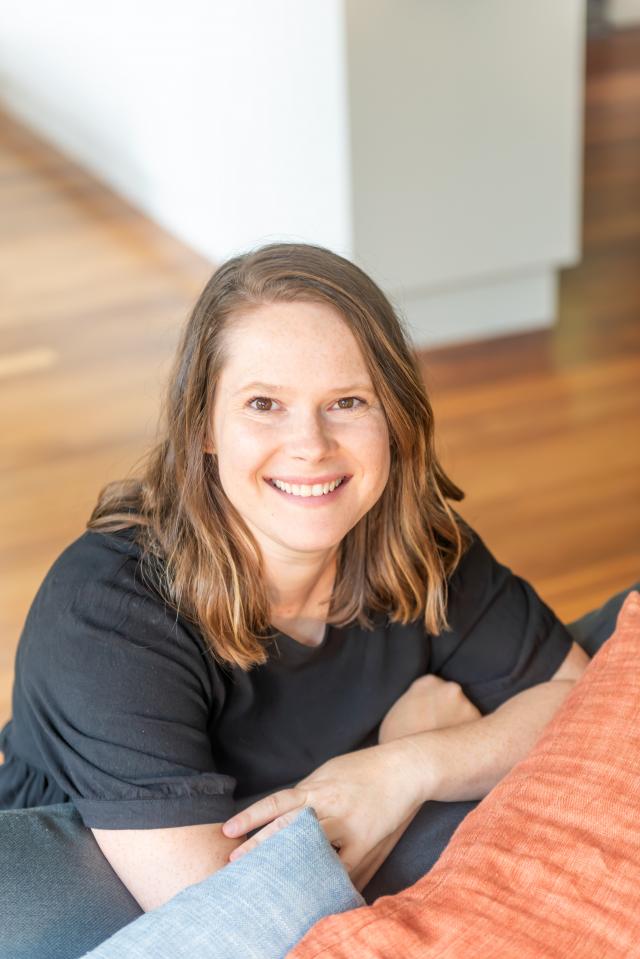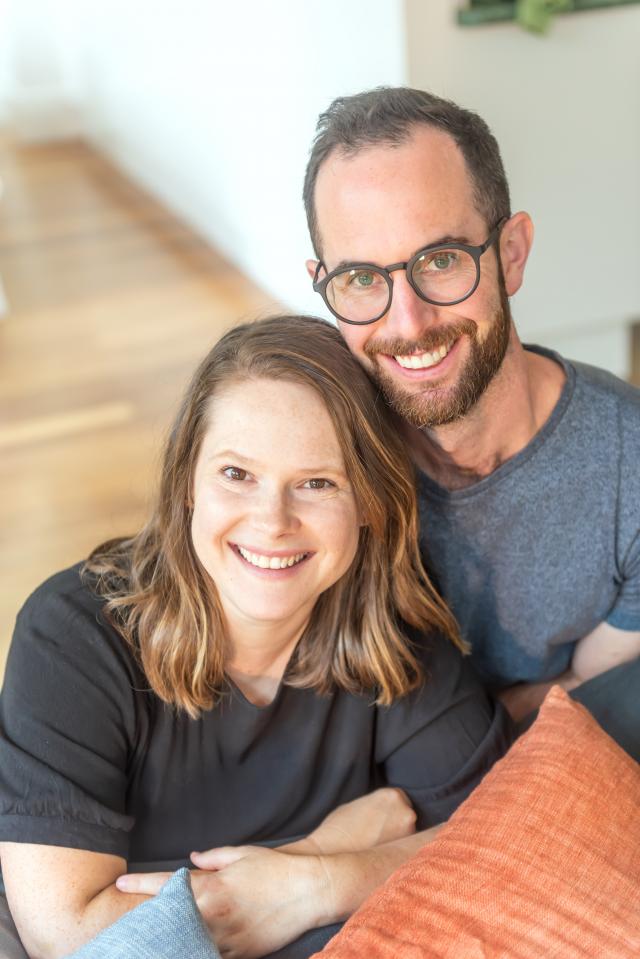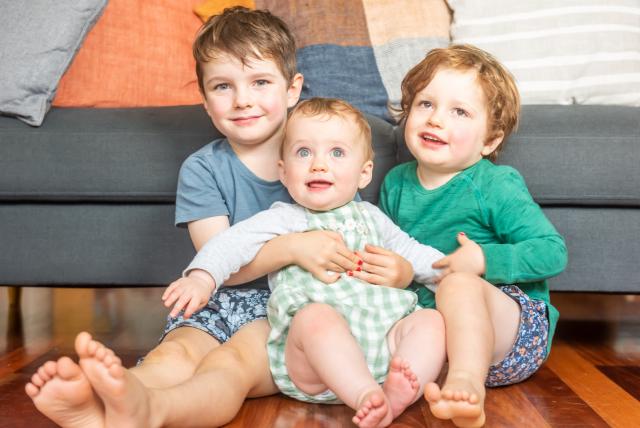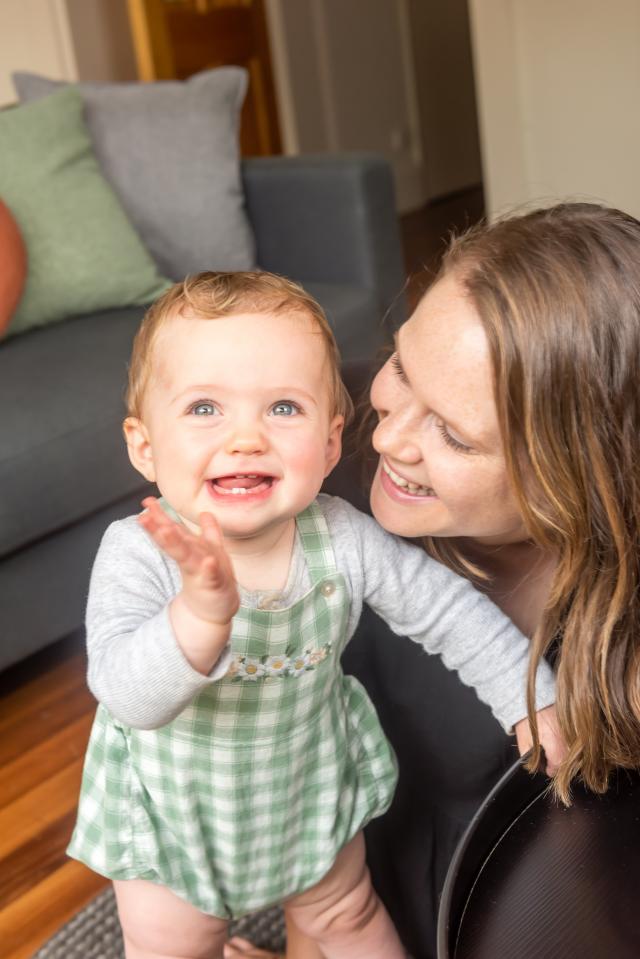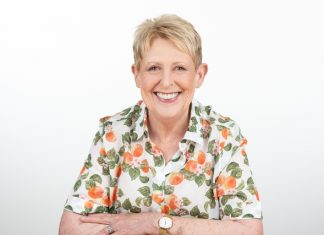By Casey Neill
The decision to have a family wasn’t an automatic yes for Seddon mum Emma Preece Boyd.
“On the one hand I adored my own mum and just thought she was so incredible and sacrificial,” she said.
“I was the youngest child – nice and selfish and spoiled.
“I couldn’t imagine being like my mum. I couldn’t live up to her.”
Emma had never been “clucky” and she loved her work as a trauma counsellor with refugees and asylum seekers.
“I wanted to travel the world and do international development,” she said.
“Motherhood just wasn’t in the plan.”
Having a “wonderful partner who was keen on having a family” in husband Simon Boyd changed her thinking.
“I actually really love being a mum much more than I expected to,” she said.
Emma did “so much birth prep” before welcoming their first child, Angus, now 5.
“It was absolutely going to be a vaginal, unmedicated birth with him,” she said.
“I was ideologically invested in that.”
She went into spontaneous labour, but Angus was suffering significant heart rate decelerations.
“The cord was wrapped around his neck very tightly,” Emma said.
“He wasn’t handling the contractions because of that.”
So Emma was rushed in for a caesarean.
“It was a really hard way for me to enter motherhood,” she said.
“It wasn’t what I expected.
“Birth narratives and education can fail women.
“We set up this really glorified view of birth.”
Fast forward 18 months and Emma was pregnant with Wynton, now 3.
She was a good candidate for a vaginal birth after caesarean (VBAC).
“The cord issue was a fluke. It’s just bad luck, not like something wrong with my pelvis or that I didn’t dilate,” she said.
“But I was still so depressed. I was struggling with my mental health at that time.
“I felt like if I tried for a vaginal birth again and I failed again, I couldn’t live with that.
“I hadn’t gotten over that idea that there was one successful way to birth.
“I worked through the decision a lot with a psychologist, which was really helpful.
“What I wanted more than anything was a birth that was within my control and a positive birth.
“I started researching positive caesareans and gentle caesareans.”
Wynton was born via scheduled caesarean.
“They dropped the drapes for me so I could see him be born,” Emma said.
“He came straight onto my chest and fed straight away.
“That was such a wonderful experience.”
Fast forward another 18 months to Mabel’s birth. She was 10 months old when we spoke.
“I started to think ‘I just don’t want to have major surgery again,” Emma said.
Her GP and the hospital both said ‘no’ to a VBAC due to an increased risk of uterine rupture.
She felt sad that her options were so limited.
“With Wynton, that’s what was right for me at the time,” she said.
“Now I was OK with the idea that a VBAC could end in a ceasar.
“I had shifted and a positive birth could be either.”
She searched for a care provider willing to support her through a VBAC and landed with a private obstetrician.
“Mabel was born through a very uncomplicated, long labour with no birth injuries – just a wonderful experience and very good recovery,” Emma said.
“In the birthing world there’s a lot of black and white.
“It’s taken me three births to realise ‘actually, we might not need to be that way’.
“I also realised that birth is a moment in time. Motherhood is bigger than birth.
“No matter what mode, it’s how a woman feels she’s being treated.
“We should focus less on mode of delivery and more on how to help women feel empowered.”
Welcoming Angus had turned Emma’s world upside down.
“I found it really hard to accept motherhood and accept that change in identity and what my life looked like,” she said.
“I could only see what had been taken away, not what had been given.”
In hindsight, Emma said she was suffering with postnatal depression for the first 18 months of motherhood.
“As a high-achieving, productivity-focused person, I took it on as a new challenge, and tried to be really good as a mum,” she said.
“I found it wonderful and really hard at the same time.”
Emma knew being a mum would be “a hard gig” and wanted to share the load with Simon.
“I had ambitions around that – both of us did, actually,” she said.
“Overall I realised that it feels like it’s a lot more work to try and divide the labour sometimes.
“There’s lots of promises that you can have it all.
“They’re empty.”
Emma and Simon really enjoyed growing their family from one child to two.
“Going to three has been a huge jump. It feels like going from two to five,” she laughed.
“We both come from families of three, so for us that’s what family looked like.
“It really feels different to the norm in the inner city of Melbourne. I go to school drop-off and everyone has one or two kids.”
There are “a lot of logistics and noise and hands needed” with three kids.
“It’s a different experience of parenting. There’s a lot I’ve had to let go,” Emma said.
“I’m a lot calmer and less productivity-focused, having three.
“I’ve had to come to terms with what’s possible.”
An au pair has helped enormously.
“Au pairs live with you, and give you a little help in the morning and afternoon,” Emma said.
“I actually really like it because I’m quite extroverted and I find motherhood really isolating.
“It’s been life-changing, just to have an extra pair of hands.
“She might be around helping prepare for dinner while I’m breastfeeding Mabel, or helping Gus with his homework.”
Or she might take the kids into the back yard so Emma can prepare dinner in peace.
“I have that craving less because I’ve had less of the dependence on me all day,” she said.
“I actually can lean into ‘the kids really need me right now’.”
Emma said that in other cultures, there was always an extra pair of hands available.
“So much of what I find hard about motherhood, other cultures, I can see how they do that a lot better than us,” she said.
“Western society and capitalist norms around motherhood are really unsustainable and I think they rob everyone, actually, of a lot.
“Western society is absolutely preoccupied with putting on a show: ‘I’m a competent individual. I’m independent, I can do it myself.’
“Motherhood is so humbling in terms of realising ‘actually, you can’t do everything yourself’
but you have to present that you can.
“That just ends up imploding relationships, partnerships and families.
“I’ve been really humbled by parenthood and had to become a lot more honest with myself and others.
“I found it really hard to say ‘I actually need help and in this instance I will pay for it’.
“We’ve effectively put a price tag on knowledge and care that in other cultures would be provided by family and friends and community.
“That saddens me a bit.
“We put a price tag on that to make it a valid thing for a woman to do.
“This is a really important job. If parents don’t parent well, society fails.”


